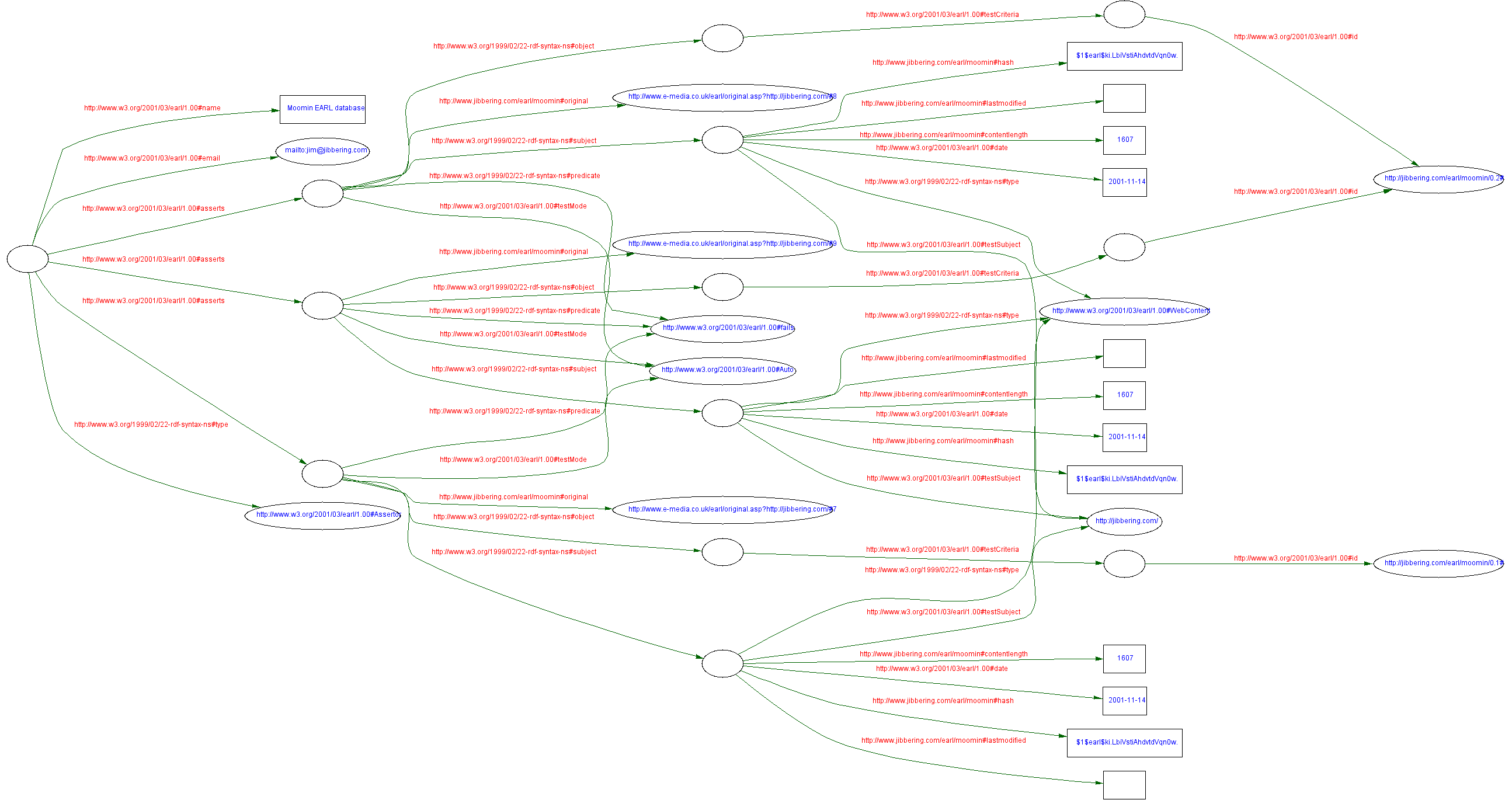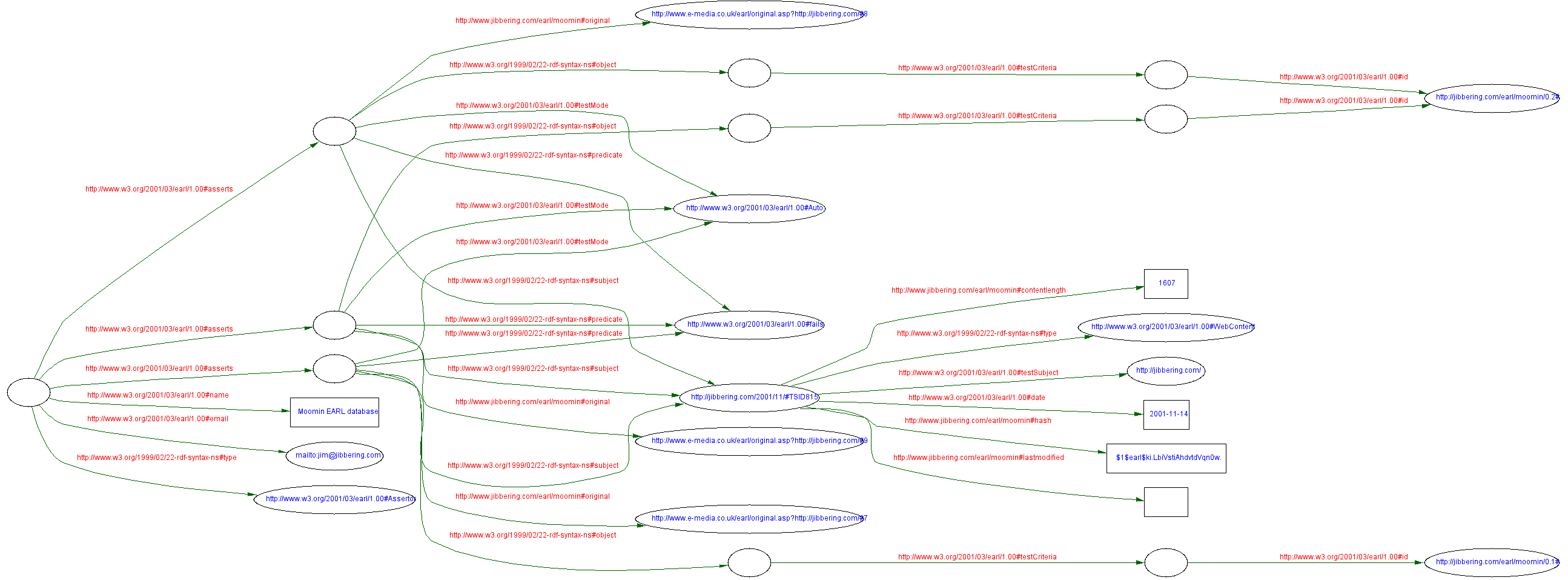- From: Sean B. Palmer <sean@mysterylights.com>
- Date: Thu, 15 Nov 2001 03:20:35 -0000
- To: "Jim Ley" <jim@jibbering.com>
- Cc: <w3c-wai-er-ig@w3.org>
- Message-ID: <03f801c16d84$9b590e20$bbdd93c3@localhost>
> It passes the validator, but I'm not to sure about the > graph, [...] Yep; you were nearly there, with only a couple of "errors". First, statements can't have multiple subjects, predicates, or objects, only one, so you need to wrap each of the statements in "<asserts>" to separate them. Secondly, I think that the "original" property belongs hanging off of the statement, rather than the object. That is, the page didn't fail the original statement, but rather, the whole assertion was originally at x. I've attached two possible ways of doing the output. The first one <<query_a.xml>> is with repeated subjects. Unfortunately, XML RDF doesn't have any shorcuts for when you have repeated subjects (N3 does: in fact it has shortcuts for repeated subjects, *and* for repeated subjects and predicates). However, we can give the subject an ID (I just gave it a dummy date-stamped, random URI at your site), and then use that ID to save repeating the whole data about the subject. The result: a file that's only 78% of the size <<query_b.txt>>, and a subject that can be accessed again from external files. It's up to you which version you use (whichever will be easiest: although go for the IDs if you can generate them easily). I've also attached PNG graphs of the model, as <<query_a.png>>, and <<query_b.png>>. Enjoy :-) -- Kindest Regards, Sean B. Palmer @prefix : <http://webns.net/roughterms/> . :Sean :hasHomepage <http://purl.org/net/sbp/> .
Attachments
- text/xml attachment: query_a.xml
- text/xml attachment: query_b.xml
- image/png attachment: query_a.png

- image/png attachment: query_b.png

Received on Wednesday, 14 November 2001 22:22:11 UTC